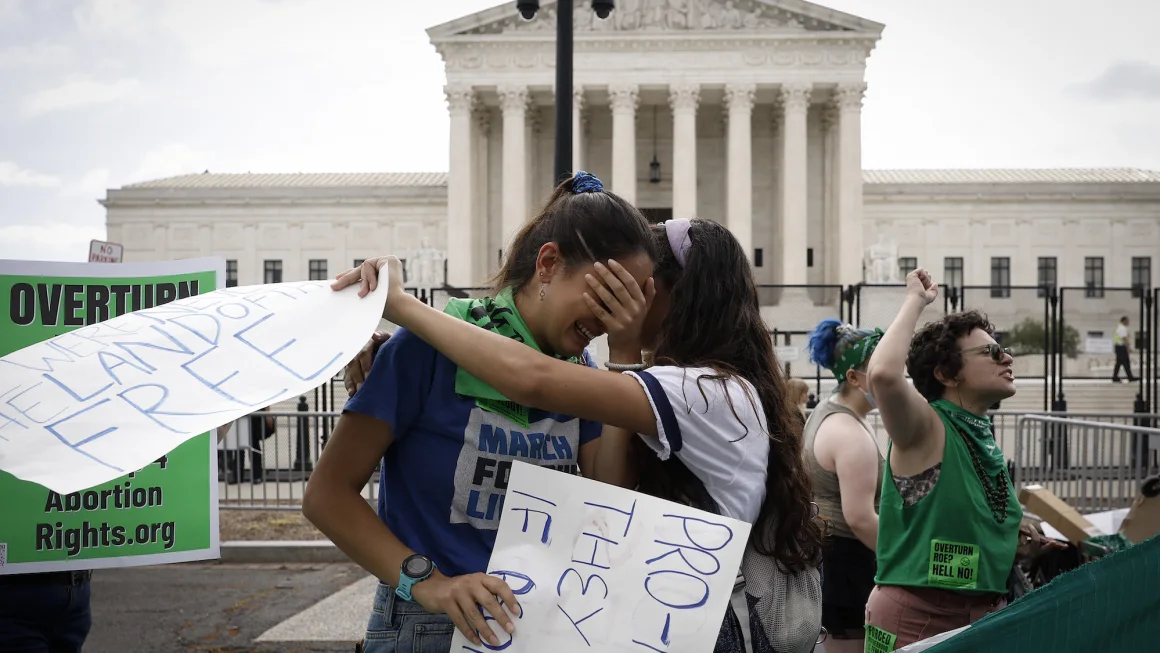The Supreme Court overturned Roe v. Wade 2 years ago. Here’s what’s happened since
By Lauren Mascarenhas, CNN
Published 9 AM EDT, Sat June 22, 2024

Abortion rates reach a decade-long high in the US
Despite an increase in restrictive policies, the number and rate of abortions in 2023 hit their highest point in over a decade, according to a report from the Guttmacher Institute, a research and policy non-profit that advocates for sexual and reproductive health rights.
The organization estimates there were more than 1 million abortions in the formal US healthcare system last year, a 11% increase from 2020. States without total abortion bans saw a 26% increase from 2020, according to the report.
The loss of abortion access in states with bans, the authors noted, was countered by “efforts on the part of clinics, abortion funds and logistical support organizations to help people…access care.”Nearly two-thirds of all abortions in 2023, about 642,700, were medication abortions - not including self-managed medication abortions outside of the healthcare setting, the report says. The authors note a steady increase since 2001, when medication abortions accounted for less than 10% of all procedures. Over the years, the US Food and Drug Administration relaxed some of the restrictions for use of the abortion pill, and access to the medication increased. In 2016, the agency deemed the abortion pill safe to use up to 10 weeks into pregnancy, rather than seven, and expanded the pool of providers who could prescribe it. After the onset of the Covid-19 pandemic, the FDA allowed for the pill to be dispensed by certified pharmacies and through the mail, rather than just in healthcare settings.
States implement increasingly restrictive abortion policies
More than a dozen states passed abortion “trigger laws” ahead of the court's decision, meant to take effect almost immediately in the event that Roe was overturned, and at least seven states without trigger laws have followed suit with restrictive reproductive health policies that critics say put patients in danger and leave providers at risk of civil and criminal liability.
Patients and providers have struggled to navigate a patchwork of sometimes hastily implemented abortion policies that include mandatory waiting periods to obtain an abortion in states including Arizona and Georgia, limits on Medicaid coverage for abortion, in states including South Dakota, and vague language around medical emergency exceptions to abortion bans in states including Texas. Lower courts have been asked to take abortion issues up in multiple legal challenges across states.
Patients cross state lines to access reproductive care
More than 171,000 patients travelled for an abortion in 2023, according to the Guttmacher Institute.
Many people who traveled to obtain abortions before Roe was overturned were going to states that now have total abortion bans, meaning people are now traveling farther distances - sometimes crossing multiple state lines - to access care, the organization noted recently.
In just the first half of 2023, nearly 1 in 5 people who had an abortion - more than 92,000 people - traveled across state lines for abortion care, according to a December 2023 analysis from the institute. As the abortion care landscape becomes more and more restrictive, Alexandra Mandado, president of Planned Parenthood in South, East and North Florida, says that remaining abortion clinics will struggle to absorb the increase in out-of-state patients.